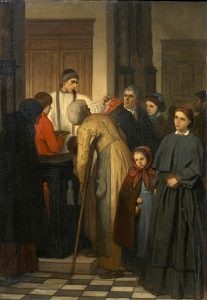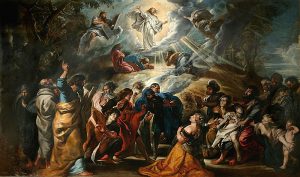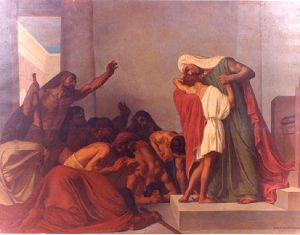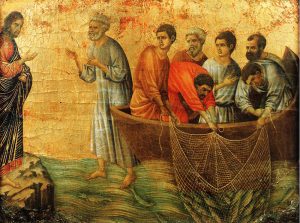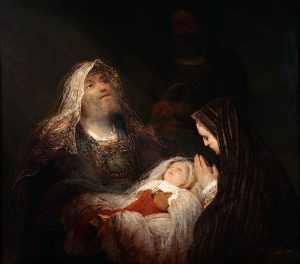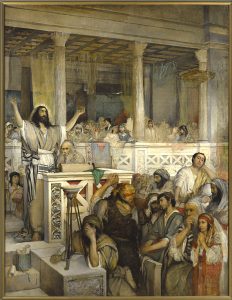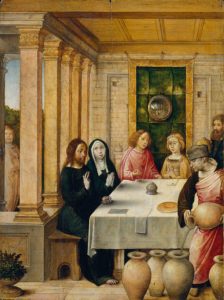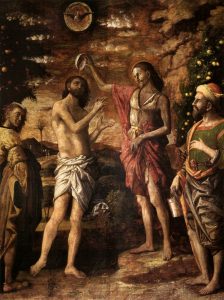Thoughts on Sunday’s Lessons for March 9, 2025 (Lent 1C)
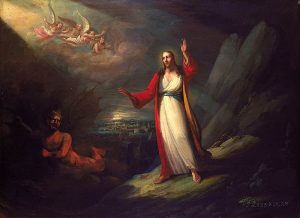
Christ Tempted by the Devil (1818), oil painting on panel by John Ritto Penniman (1782-1841). Smithsonian American Art Museum. (Click image to enlarge.)
First Reading: Deuteronomy 26:1-11
During Lent, as we read in the Book of Common Prayer, Christians are invited “to the observance of a holy Lent, by self-examination and repentance; by prayer, fasting, and self-denial; and by reading and meditating on God’s holy Word.” Sunday’s Lectionary readings gently guide us into this season with reminders from Scripture that God loves us, protects us, and calls us to follow God’s way. Our first reading recalls an ancient harvest liturgy, when the people would tithe the land’s bounty in thanksgiving to God who led them out of slavery in Egypt and brought them to a rich and fruitful land.
Psalm: Psalm 91:1-2, 9-16
These verses that we chant in Sunday’s Psalm set the scene for the day’s Gospel: “He will command his angels concerning you … On their hands they will bear you up, so that you will not dash your foot against a stone.” This promise underscores the hopeful message of Psalm 91, and by extension the Gospel according to Matthew: Even when bad things happen – plague, injury, even attacks by lions and venomous serpents – we live in God’s shadow. God is with us when we are in trouble. God will answer when we call.
Second Reading: Romans 10:8b-13
Paul’s pastoral advice to the early Christian community in Rome, a mixed body of Jewish and pagan Christians, continues the theme of Sunday’s readings. In the Psalm, we acknowledged our trust in God’s protection. Here, Paul reminds the people of the infant Roman church that the pathway to salvation opens when we accept Jesus and the Resurrection. In the first reading, we recalled that our spiritual ancestors were foreigners in a strange land, held as slaves in Egypt. Now Paul makes it clear that there is no Jew or Greek, no insider or outsider in the way of Jesus: We are all together in one God for all.
Gospel: Luke 4:1-13
Immediately following his baptism by John in the Jordan, Jesus was led by the Spirit into the desert to fast and pray for 40 days, a period that is reflected in the 40 days of Lent. Famished at the end of his long fast, Jesus meets the devil, who tests him with the suggestion that if he is the Son of God, he could turn stones into food. Failing that, the devil tempts Jesus again with visions of power and glory if only he would turn from God. Jesus resists each temptations, warning the devil not to put God to the test. The devil then leaves him “until an opportune time.” In the verses that follow this passage, Jesus goes directly to his hometown synagogue where he will proclaim good news to the poor, release to the captives, sight to the blind, and freedom to the oppressed.

